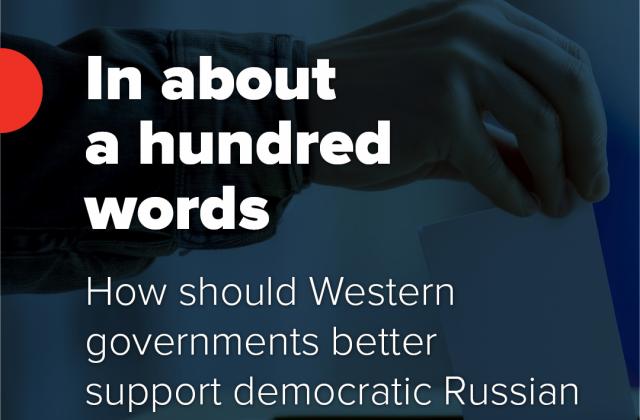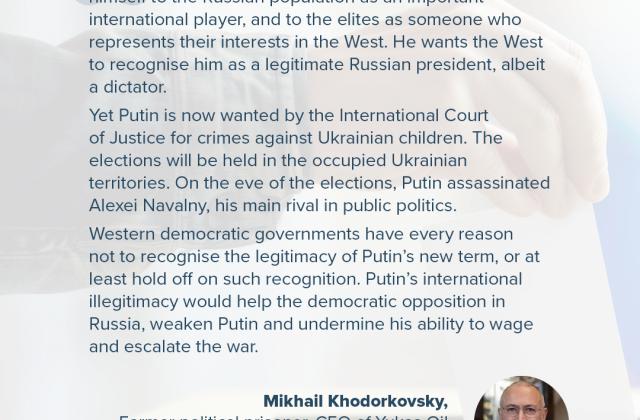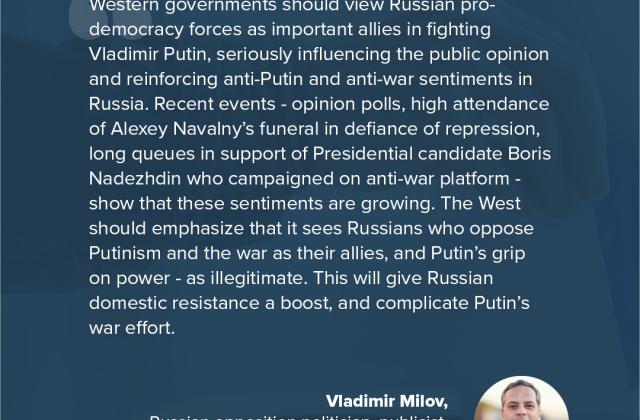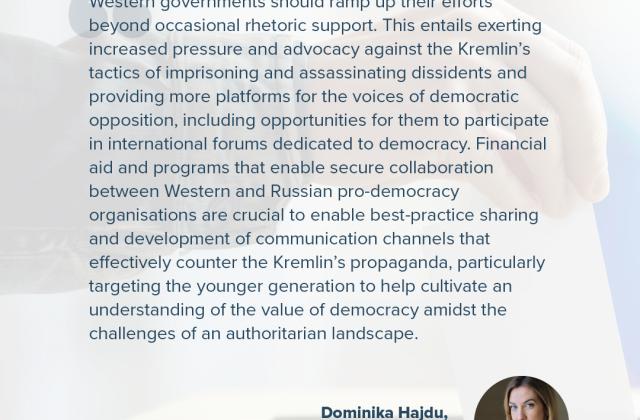In About a Hundred Words: How Should Western Governments Better Support Democratic Russian Opposition?
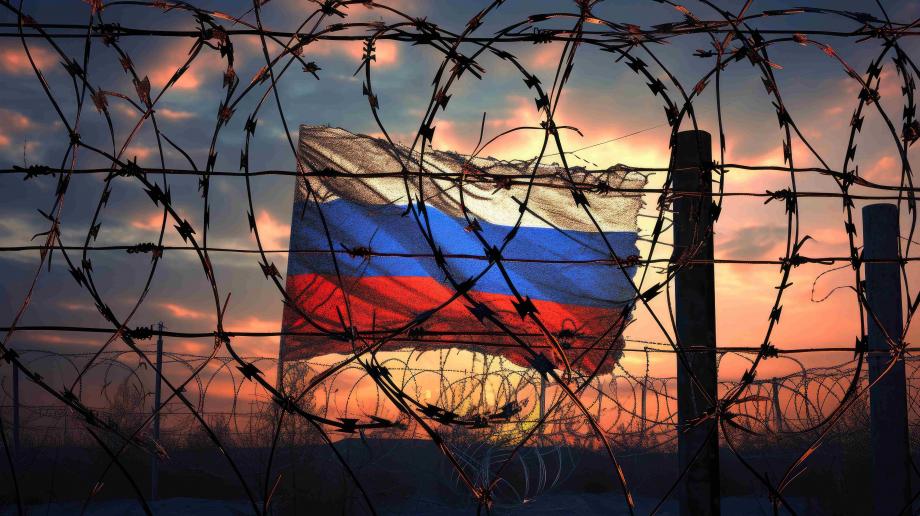
With the outcome of Russia’s upcoming presidential election already settled and Putin set to rule indefinitely, how should Western governments better support democratic Russian opposition forces? We asked three experts to give their take on the matter.
Mikhail Khodorkovsky, Former political prisoner, CEO of Yukos Oil company, Author of "How to Slay a Dragon: Building a New Russia After Putin"
Putin cares about international legitimacy. He 'markets' himself to the Russian population as an important international player, and to the elites as someone who represents their interests in the West. He wants the West to recognise him as a legitimate Russian president, albeit a dictator. Yet Putin is now wanted by the International Court of Justice for crimes against Ukrainian children. The elections will be held in the occupied Ukrainian territories. On the eve of the elections, Putin assassinated Alexei Navalny, his main rival in public politics. Western democratic governments have every reason not to recognise the legitimacy of Putin's new term, or at least hold off on such recognition. Putin's international illegitimacy would help the democratic opposition in Russia, weaken Putin and undermine his ability to wage and escalate the war.
Vladimir Milov, Russian opposition politician, publicist, economist; Former Deputy Minister, Ministry of Energy of the Russian Federation
Western governments should view Russian pro-democracy forces as important allies in fighting Vladimir Putin, seriously influencing the public opinion and reinforcing anti-Putin and anti-war sentiments in Russia. Recent events - opinion polls, high attendance of Alexey Navalny's funeral in defiance of repression, long queues in support of Presidential candidate Boris Nadezhdin who campaigned on anti-war platform - show that these sentiments are growing. The West should emphasize that it sees Russians who oppose Putinism and the war as their allies, and Putin's grip on power - as illegitimate. This will give Russian domestic resistance a boost, and complicate Putin's war effort.
Dominika Hajdu, Policy Director of the Center for Democracy & Resilience, GLOBSEC
Western governments should ramp up their efforts beyond occasional rhetoric support. This entails exerting increased pressure and advocacy against the Kremlin's tactics of imprisoning and assassinating dissidents and providing more platforms for the voices of democratic opposition, including opportunities for them to participate in international forums dedicated to democracy. Financial aid and programs that enable secure collaboration between Western and Russian pro-democracy organisations are crucial to enable best-practice sharing and development of communication channels that effectively counter the Kremlin’s propaganda, particularly targeting the younger generation to help cultivate an understanding of the value of democracy amidst the challenges of an authoritarian landscape.
